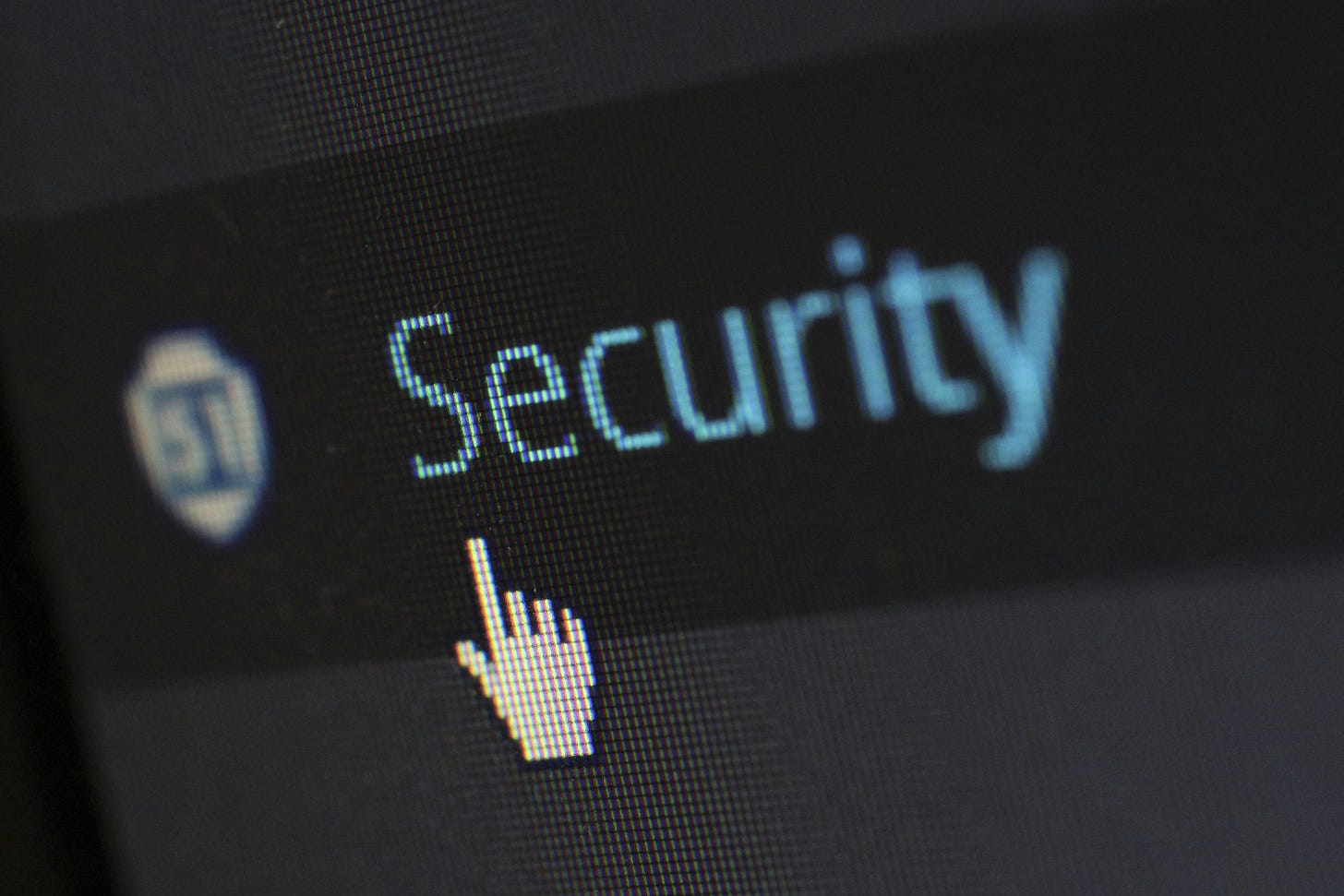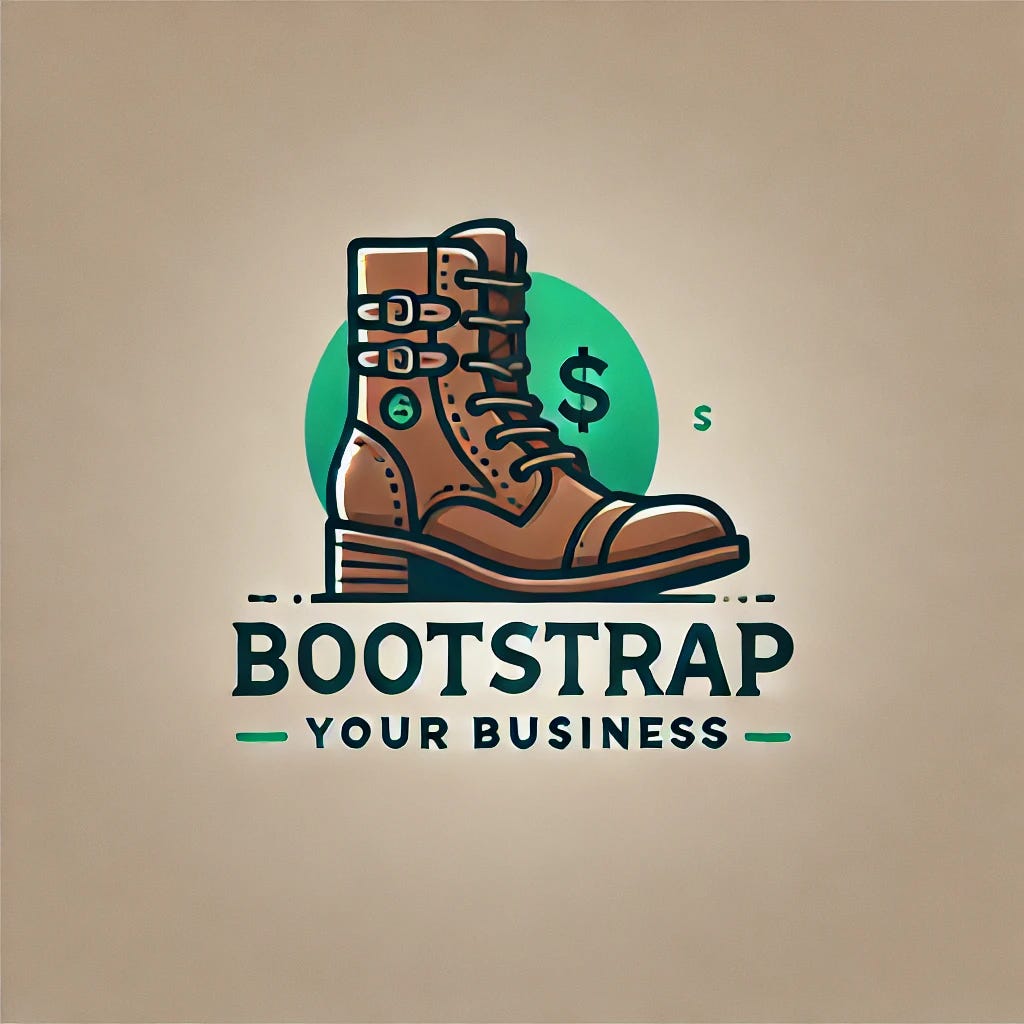[Guest Post]Cybersecurity and Data Privacy Expenses May Be Deductible (to Save on Taxes)
If you are self-employed, your Substack subscription to “Beyond the Firewall” with Jason Rowe may be a tax deductible business expense.
This is a great pleasure of mine to share this guest post with you all. This author (Andi) is an entrepreneur who has paved the way in her professional life and is now helping others follow a similar path.
Her content is both useful and insightful, offering clear strategies that new business owners can use to cut years of trial and error out of their journey.
I hope you enjoy this post and please subscribe to her publication Bootstrap Your Business
‘Hello!’ to all of the Subscribers of Beyond the Firewall! 👋😀
Let me begin by saying that I am honored by the opportunity to write this guest post for Jason Rowe’s subscriber community.
Thanks, Jason!
Jason’s expertise in cybersecurity, privacy, and identity protection is invaluable - as you all know, by now - and I’m excited to share some insights from my experience to help Jason and this subscriber community grow and thrive.
About this Guest Post
If you have seen my Substack, Bootstrap Your Business, you will know that I’m an entrepreneur with several successful businesses, and have experience coaching professionals on how to escape their 9-5 jobs in the tech sector to become independent consultants and solopreneurs.
In this post, I want to help self-employed professionals and freelancers - like many of you - to maximize your tax deductions and save on your tax bills by investing in essential security tools and services, like the subscription fees that you have paid to be part of this amazing Substack community.
Yes, you read that right!
📌 Did you know?
Your monthly subscription fees for Beyond the Firewall
may be 100% deductible as a business expense!

Why Are Substack Subscriptions Deductible?
Running a business or working as a freelancer comes with a lot of expenses, but the good news is that many of them are tax-deductible. This includes the cost of protecting your privacy and identity by educating yourself and acquiring the tools and knowledge needed to make better decisions.
In today’s digital landscape, data breaches, phishing scams, and identity theft are real threats that can disrupt business operations and put sensitive client information at risk.
Fortunately, the IRS allows deductions for ordinary and necessary business expenses, and cybersecurity tools and services fit squarely into that category.
Here’s a breakdown of how business owners and freelancers can deduct the cost of essential cybersecurity, privacy, and identity protection expenses - including subscriptions to valuable resources like Beyond the Firewall.
1. Subscriptions to Cybersecurity and Privacy Platforms
If you pay for a Substack subscription to a platform that provides expert insights into cybersecurity, privacy, or identity protection - such as Jason Rowe’s awesome publication - this can be considered a deductible business expense.
As long as the information you gain from the subscription:
directly benefits your business operations,
helps you improve security practices, or
educates you on protecting client data,
…you can claim it under business-related education or professional resources.
2. Cybersecurity Software and Tools
Investing in software to secure your business data is not just a smart move - it’s a deductible one.
Here are some of the tools that qualify as an eligible business expense:
VPN Services: Protects your online activity, especially when working remotely.
Password Managers: Ensures secure and unique passwords for business accounts.
Antivirus & Anti-Malware Software: Guards against cyber threats.
Firewall & Endpoint Protection: Prevents unauthorized access to your systems.
Backup and Recovery Services: Protects business-critical data from ransomware attacks.
3. Domain Privacy and Secure Hosting Fees
If you run a business website or personal brand, securing your domain and web hosting is critical.
Fees for domain privacy protection, SSL certificates, secure hosting plans, and content delivery networks (CDNs) like Cloudflare are all deductible expenses.
These services help prevent data leaks, website hacking, and phishing scams.
4. Secure Communication and Productivity Tools
Privacy-focused business communication tools are also deductible if they contribute to securing your business operations.
Consider these tools as part of your business software suite:
Encrypted Email Services (ProtonMail, Tutanota)
Secure Cloud Storage (Tresorit, Sync.com)
Collaboration Tools with End-to-End Encryption (Signal, Wire)
5. Employee or Contractor Security Training
If you have employees or hire contractors, investing in security awareness training can reduce risks and qualify as a deductible business expense.
Online courses, training subscriptions, and security workshops all fall under business education expenses.
6. Professional Cybersecurity Consulting and IT Services
Hiring an IT professional or cybersecurity expert to assess your systems, conduct penetration testing, or improve digital security practices is another fully deductible expense.
This includes consulting services that help protect sensitive client data and ensure compliance with industry security standards.
7. Books and Digital Products
Physical books, e-books, and online courses related to business, cybersecurity, and privacy are often deductible business expenses.
If you purchase books on security best practices, digital privacy, or entrepreneurship, these can qualify as professional development expenses.
Similarly, purchasing digital guides, templates, or paid research reports that support your business operations can also be deducted from your income taxes.
How to Properly Deduct These Expenses
To maximize deductions and avoid IRS red flags, follow these best practices:
Keep detailed records of all cybersecurity-related purchases.
Store receipts and track payments in your accounting software.
Categorize expenses correctly under "Software Subscriptions," "Professional Services," or "Security & IT Expenses."
If you use any of these services for both business and personal purposes, only deduct the business portion of the expense.
💡 Tip: for more guidance on running your business, deducting business expenses, and eligibility requirements be sure to check out my Substack: Bootstrap Your Business.
And, learn more about the deductible expense categories that the IRS allows:
Key Takeaways
Cybersecurity is no longer optional for business owners and freelancers - it’s a necessity.
The good news is that many of the tools and services that help keep your business safe are also tax-deductible, reducing your overall tax liability while enhancing your digital security.
If you're interested in more tips on managing business finances, reducing expenses, and making your business more profitable, check out my Substack: Bootstrap Your Business where I provide step-by-step guides and resources to help entrepreneurs and freelancers succeed.
Subscribe to Bootstrap Your Business!
And if you haven’t already subscribed to Beyond the Firewall with Jason Rowe, I highly recommend it as an investment (and a deductible expense!) for both your business security and tax savings!
Protect your business from cyber threats and reduce your taxable income.
Win-win!
Did you know that Substack subscription fees were deductible? Share another interesting deductible expense you may know about.
Want to participate and be a future guest poster on Beyond The Firewall? Send me a message or comment below.
Until next time…







